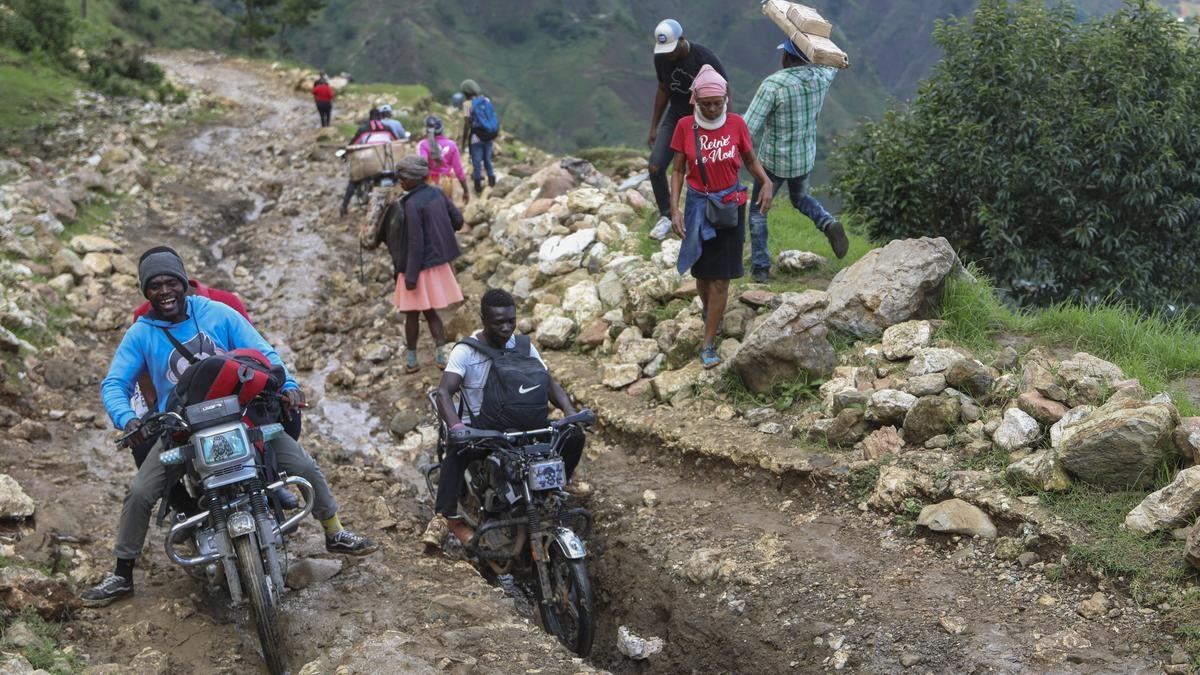Human Rights Group Calls on Latin American Nations to Enhance Protections for Venezuelan and Haitian Migrants
In a significant development, Human Rights Watch (HRW), a prominent global human rights organization, has called on Latin American governments to improve protection measures, grant legal status, and eliminate burdensome visa requirements for millions of Haitians and Venezuelans who have faced challenges in securing employment, healthcare, and education in their host countries in South America. This situation has increasingly driven them to seek asylum in the United States

Plight of Haitian and Venezuelan Migrants
In a comprehensive report, HRW detailed the struggles faced by Haitian and Venezuelan migrants in South America. The organization found that "limited" policies regarding integration and regularization in the region are compelling vulnerable individuals to migrate toward the United States each month. Many of these asylum seekers embark on a perilous journey to the U.S. border, often having to traverse the Darien Gap, a treacherous stretch of uninhabited jungle situated between Colombia and Panama
HRW called upon Latin American governments to establish a region-wide protection framework that would provide all Venezuelans and Haitians with legal status for a defined, renewable period, even if they do not meet the criteria for refugee status under local laws. Furthermore, the report advocates for the removal of obstacles that impede the integration of migrants and refugees, such as laws that restrict access to work permits while individuals await asylum decisions in other countries
Challenges in South America
According to the report, although several Latin American nations have taken commendable steps to accommodate migrants and asylum seekers, the initiatives aimed at regularizing migration in the region often fall short due to tight deadlines, complicated processes, excessive documentation requirements, and bureaucratic delays. It also highlighted that asylum systems are often overwhelmed, leading to considerable delays
The surge in Haitian migrants and asylum seekers has been fueled by a prolonged political crisis, widespread violence, and a catastrophic humanitarian situation in Haiti. About 300 criminal groups now control much of the capital, Port-au-Prince, and its metropolitan area, resulting in nearly 3,500 deaths in the first half of 2024. This violence has forced nearly 600,000 people into internal displacement between January and June, with criminal groups frequently using sexual violence and kidnapping to terrorize and control neighborhoods
Perilous Journey to the United States
According to officials in Panama, over 700,000 migrants have traversed the Darien Gap in the last 18 months en route to the United States, with approximately 238,000 making the crossing this year alone. About 65% of those navigating the perilous jungle are Venezuelans fleeing the political and economic turmoil in their homeland. Additionally, 11,000 Haitians have crossed through the jungle toward the U.S. border this year, as reported by Panama's national immigration agency
Despite the establishment of a new interim government in Haiti earlier this year, gangs still exert control over 80% of the capital Port-au-Prince, and millions face severe food insecurity, according to the U.N. food agency. Haitians residing in South America find it difficult to obtain residence permits or secure formal employment, which complicates their ability to support their families back home, thereby nudging them to pursue a journey to the United States
Violations of International Law
HRW emphasized that Haitians being returned to their country face a high risk of violence and have no effective access to protection or justice. Haiti is suffering alarming levels of killings and kidnappings by gangs that control strategic areas of the country, in a situation compounded by longstanding impunity for human rights abuses and crime amid a humanitarian crisis
The United States and other countries have been criticized for expelling or deporting people to Haiti, where they face a high risk of violence. U.S. and international refugee and human rights law requires the authorities to screen asylum-seekers individually to ensure they do not return people to places where they would be exposed to torture, persecution, or where their lives or freedom would be threatened.



